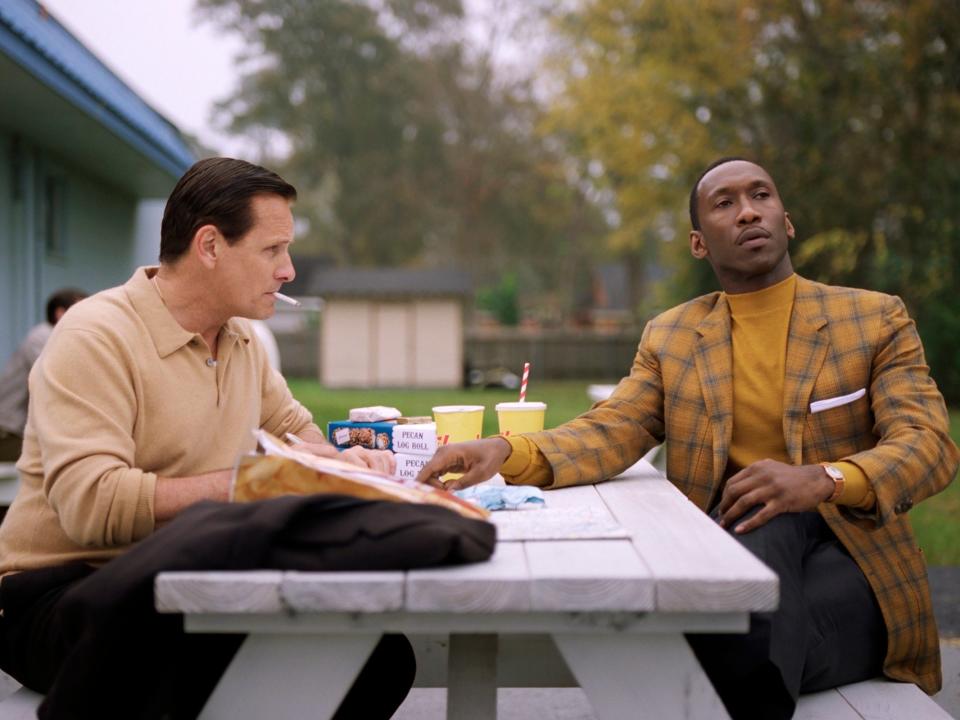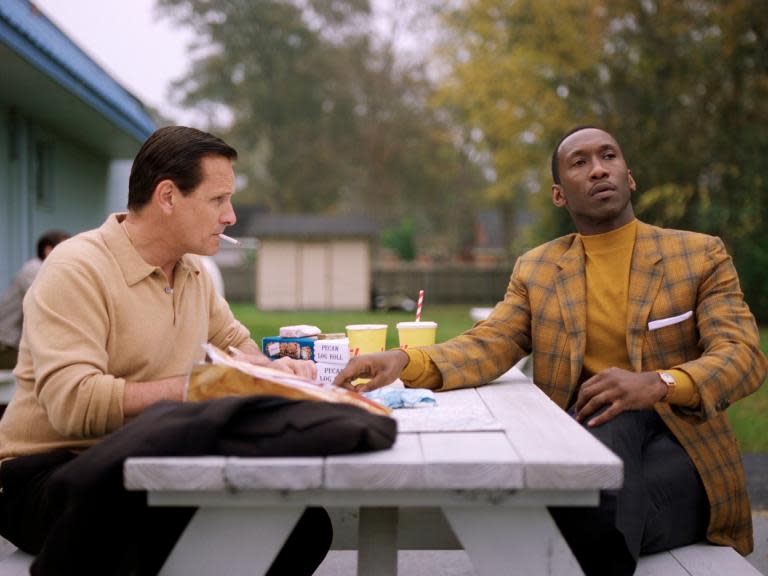Green Book director Peter Farrelly responds to whitewashing controversy: 'Our hearts were in the right place'
Green Book’s director, Peter Farrelly, has responded to the controversy surrounding the Oscar-nominated film.
The film charts the journey of African-American jazz pianist Dr Don Shirley (Mahershala Ali) who befriends Italian-American bouncer Tony Vallelonga (Viggo Mortensen) after hiring him as his chauffeur during a 1960s tour of the Deep South. On the trip, Vallelonga’s eyes are opened to more extreme cases of racism in these southern states.
Although it has earned five nominations at this year’s Academy Awards, Green Book has faced criticism over its “white saviour” narrative, alongside the fact it diminishes the importance of the Green Books referenced in the title, which served as a guide for black travellers denoting where they could travel safely within the segregated South.
“Moviegoers who will leave this movie having learned for the first time that Dr. Shirley and Green Books existed but only through a white lens, deserved better than this shallow introduction to an integral part of Black history,” wrote Brooke Obie of Shadow and Act.
However, Farrelly told the Press Association: ”It’s a movie for everybody. I know a lot of people have different opinions about it and I like that it’s getting people talking about race because that’s what the movie is supposed to do. Our hearts were in the right place when we made this movie.”
Shirley’s nephew has branded the film “a symphony of lies”, expressing anger that nobody consulted with him ahead of the film being made. Moonlight star Ali has since issued an apology to Shirley’s family.
Nick Vallellonga, the film’s screenwriter and Tony’s son, defended his decision to not to consult the family, stating that the man himself told him not to do so.
“Dr Shirley said, ‘I don’t want anything else about me in there.’ He didn’t want to tell me about his family. He could’ve had 10 brothers and sisters, and my father didn’t even know that. He didn’t want me to have information about aspects of his personal life. He granted me the right to tell this story of this time between him and my father, nothing else, and he specifically told me, ‘Don’t contact anyone about me. What I’ll tell you will be enough. No one was there but me and your father, so no one can even give you any information about what happened in that car.’”
He added: “I respected the man’s wishes. I didn’t contact anyone because he adamantly told me never to do that, even after he passed away.”

 Yahoo News
Yahoo News 

